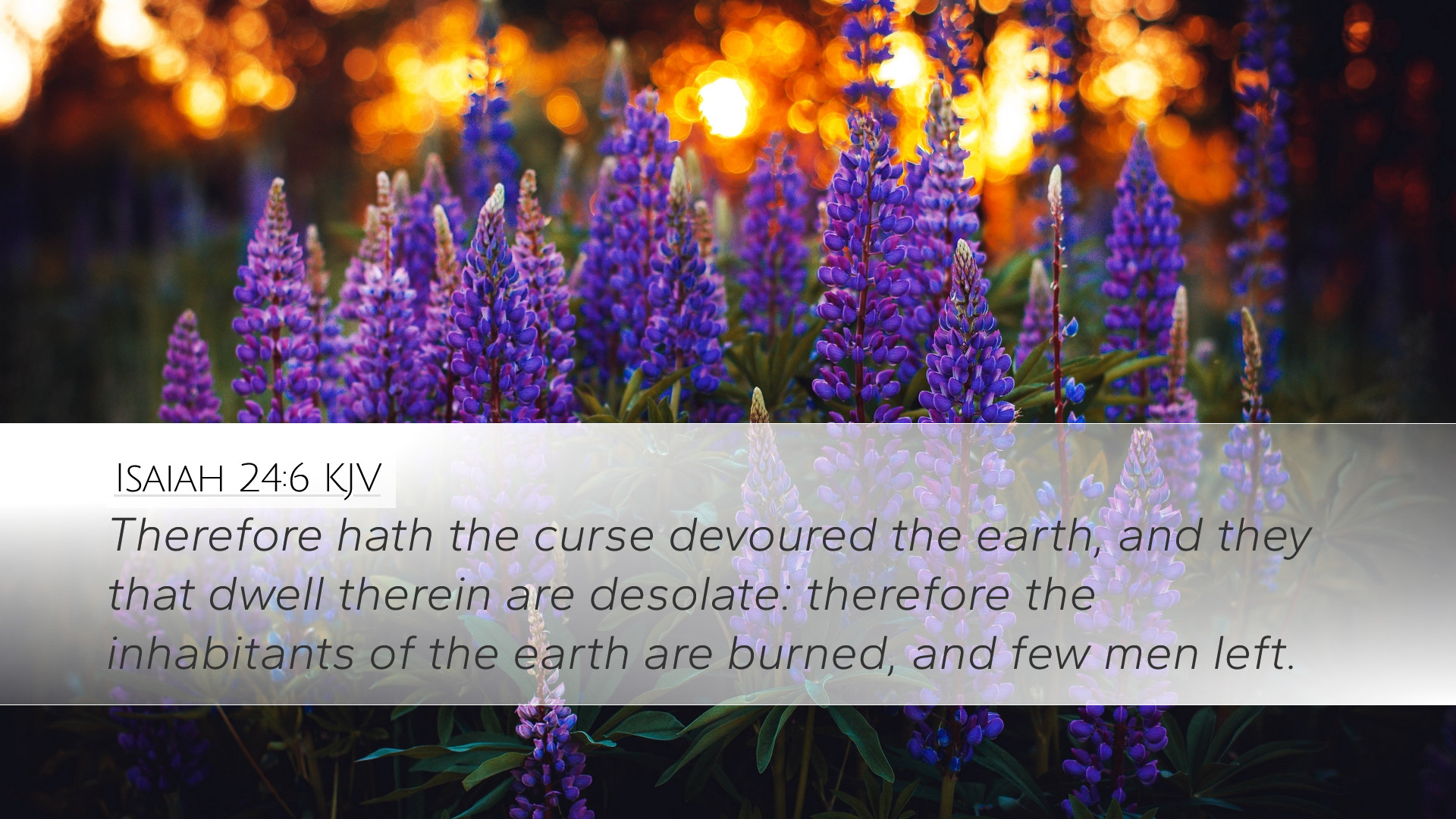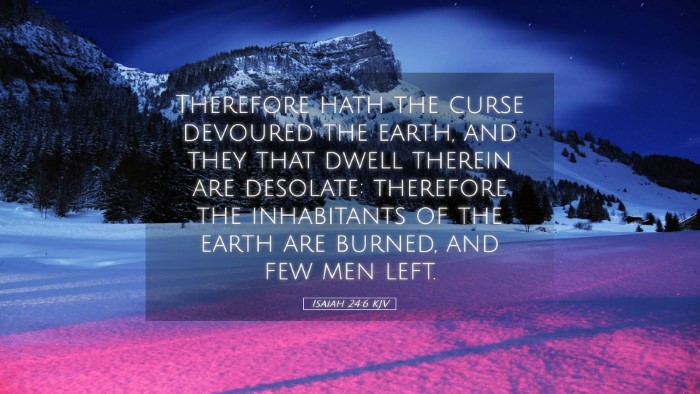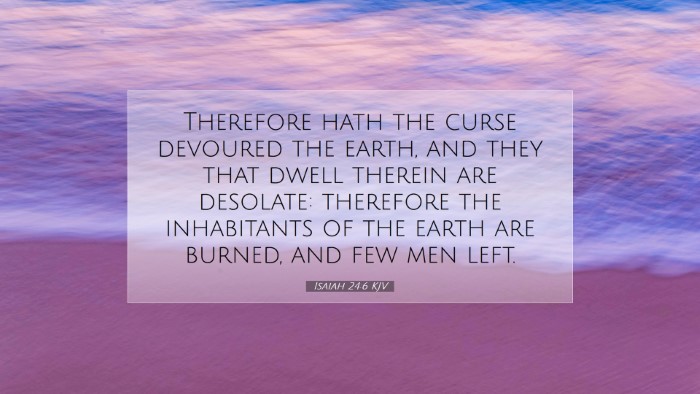Commentary on Isaiah 24:6
Isaiah 24:6 states: "Therefore hath the curse devoured the earth, and they that dwell therein are desolate: therefore the inhabitants of the earth are burned, and few men left." This verse encapsulates a profound message about divine judgment and its implications for humanity. The context of this scripture speaks to the inevitable consequences of sin and rebellion against God.
Overview of the Passage
In Isaiah 24, the prophet describes a future devastation that will come upon the earth as a result of human iniquity. The global extent of this judgment emphasizes not only Israel’s sins but also the wickedness of all nations. This verse, as part of a larger prophetic message, serves as a solemn warning that underscores the seriousness of God's covenant and the ramifications of violating His commandments.
Theological Implications
Isaiah 24:6 presents critical theological themes relevant to pastors, theologians, and scholars:
- The Nature of Divine Judgment: The "curse" that devours the earth points to a spiritual and cosmic reaction to sin. Albert Barnes discusses how this delves into God's governance, where sin leads to tangible consequences—both immediately and eschatologically.
- The State of Humanity: The reference to desolation among the inhabitants illustrates the moral and spiritual bankruptcy of a society that turns away from God. Adam Clarke notes that such desolation is not just physical but also reflects a deeper spiritual void in humanity.
- The Remnant: The phrase "few men left" suggests the preservation of a remnant, echoing themes seen throughout Scripture where God maintains a faithful few amidst widespread judgment. Matthew Henry emphasizes that God’s grace allows for a remnant to endure, preserving a lineage of faith.
Detailed Insights from Commentaries
Matthew Henry's Commentary
Henry highlights the universality of the curse, stating that it has "devoured the earth," suggesting that no corner of creation remains untouched by sin's repercussions. He elaborates on how this devastation serves as both a literal and figurative landscape of human rebellion against God. According to Henry, this should be a "warning for all nations" to heed God’s statutes and turn toward righteousness before such judgments are enacted.
Albert Barnes' Commentary
Barnes focuses on the terms "desolate" and "burned" to emphasize the totality of the judgment. He elucidates that the destruction is comprehensive, taking into account the loss of life and the despoiling of the land. The language indicates a severe and decisive action from God who, while loving, is also just. Barnes posits that this serves as a demonstration of God’s righteousness and the seriousness with which He regards disobedience.
Adam Clarke's Commentary
Clarke offers an analysis that reflects on the spiritual significance behind the imagery of burning and desolation. He argues that these elements are indicative of purification but also severe consequence—representing God's wrath against sin while simultaneously signaling a potential restoration for those who will turn back to Him. Clarke urges readers to recognize their personal responsibility in the face of such judgments.
The Context of Isaiah 24
The devastation described in Isaiah 24 is part of a broader apocalyptic vision. The chapter begins by addressing the earth’s impending ruin due to the sins of its inhabitants. This sets a tone of urgency that permeates throughout the text. Scholars often link these occurrences with imminent judgment themes prevalent in prophetic literature, particularly in the context of Babylon's eventual fall and Israel’s restoration.
Application for Today
Isaiah 24:6 has profound application for contemporary readers:
- Personal Reflection: Believers are called to reflect on their lives and consider the areas where they may fall into complacency or rebellion against God’s commands.
- Corporate Responsibility: The passage serves as a reminder that nations bear the weight of their collective actions. The church must advocate for righteousness and justice in societal structures.
- Hope Amid Judgment: Even in prophetic warnings of judgment, there lies a thread of hope. As stated in Romans 8:28, God works all things for the good of those who love Him. Understanding this offers solace and encouragement to those who endure through trials.
Conclusion
Isaiah 24:6 stands as a stark reminder of the weight of sin and the righteousness of God's judgment. By drawing insights from esteemed commentaries, we can appreciate the depth of meaning behind this text, encouraging readers to embrace both the severity of judgment and the grace offered through repentance. For pastors, students, and scholars, this verse is a call to consider the significance of obedience to God and the dire consequences that arise from transgression.


